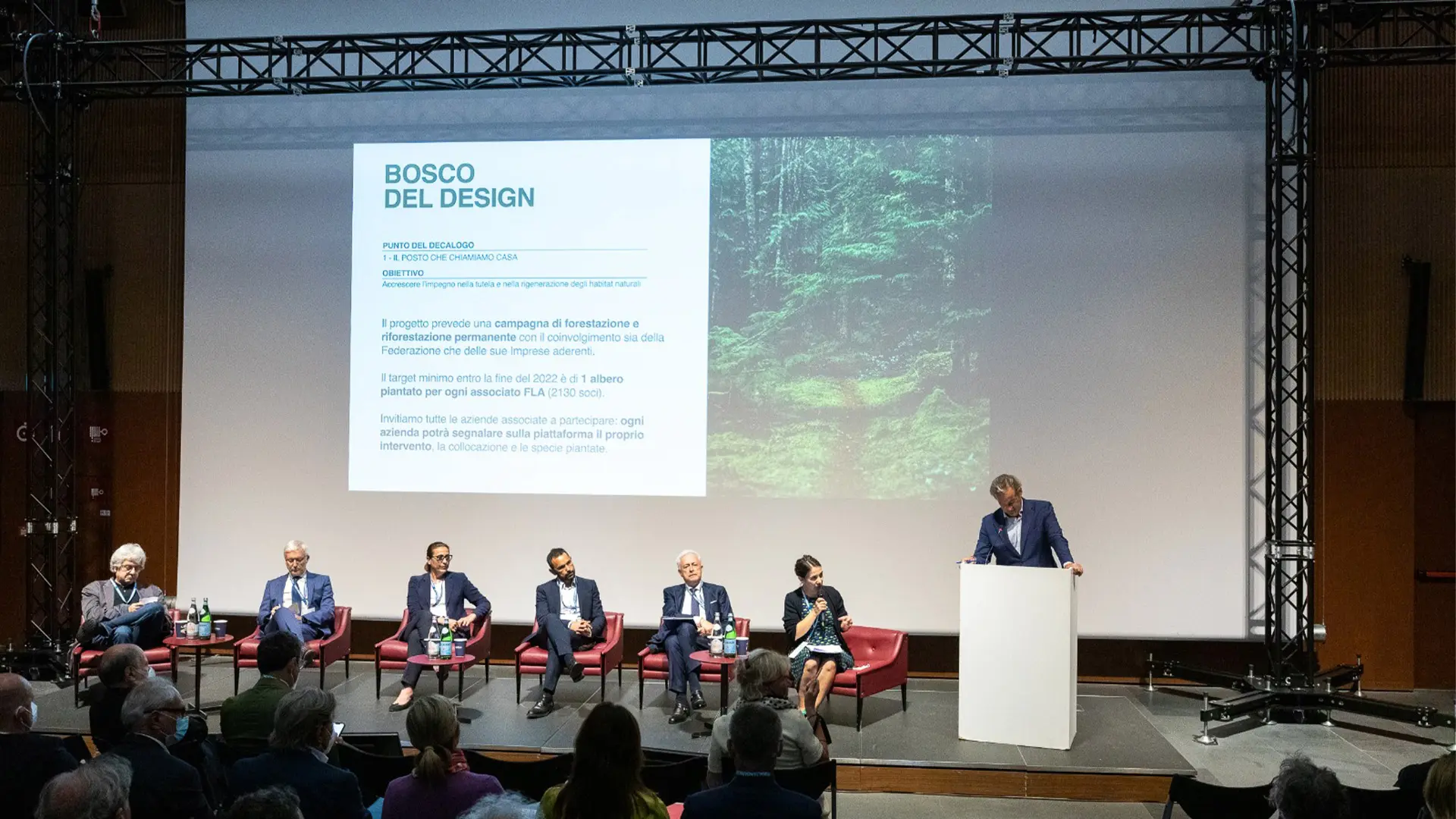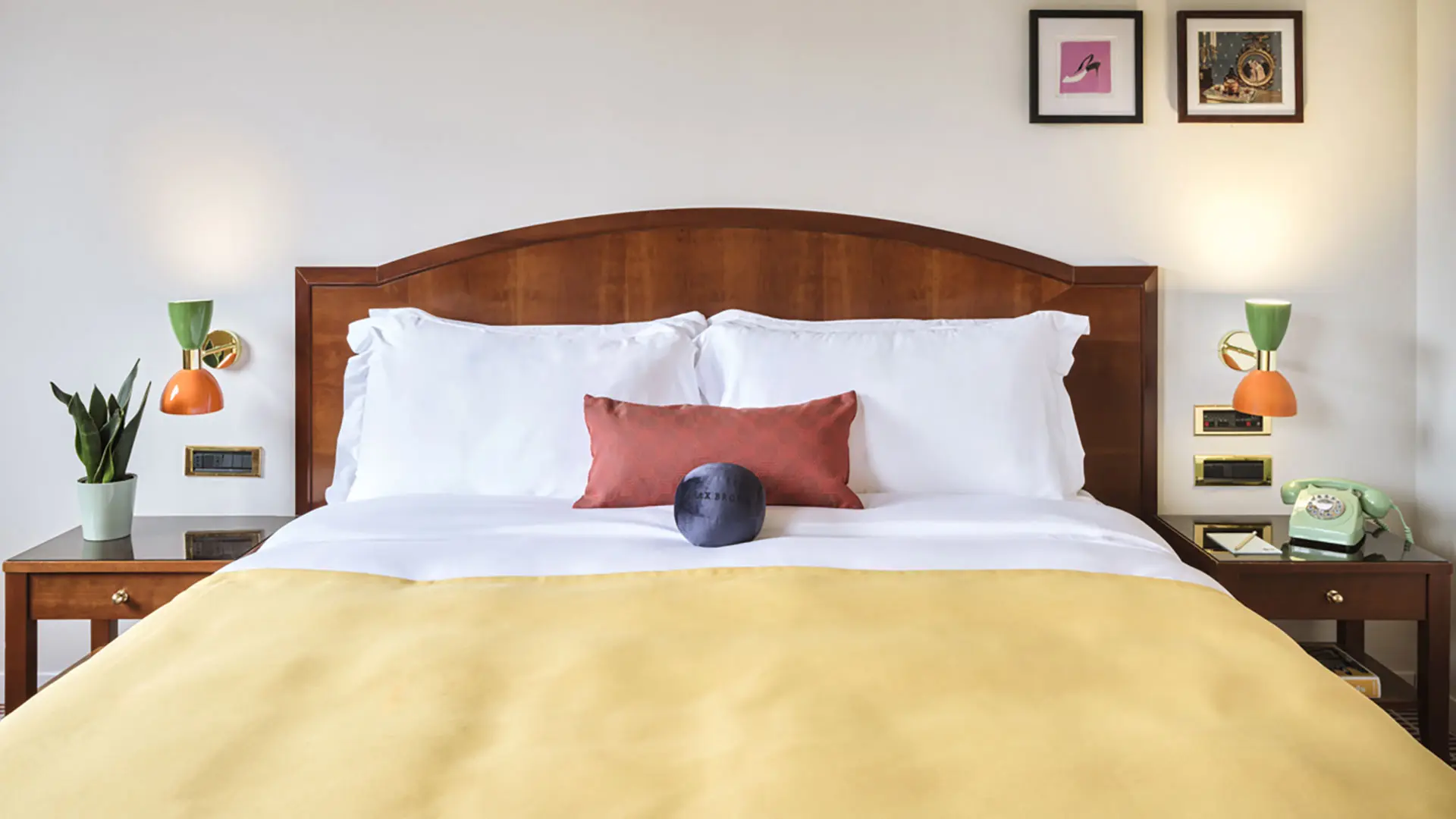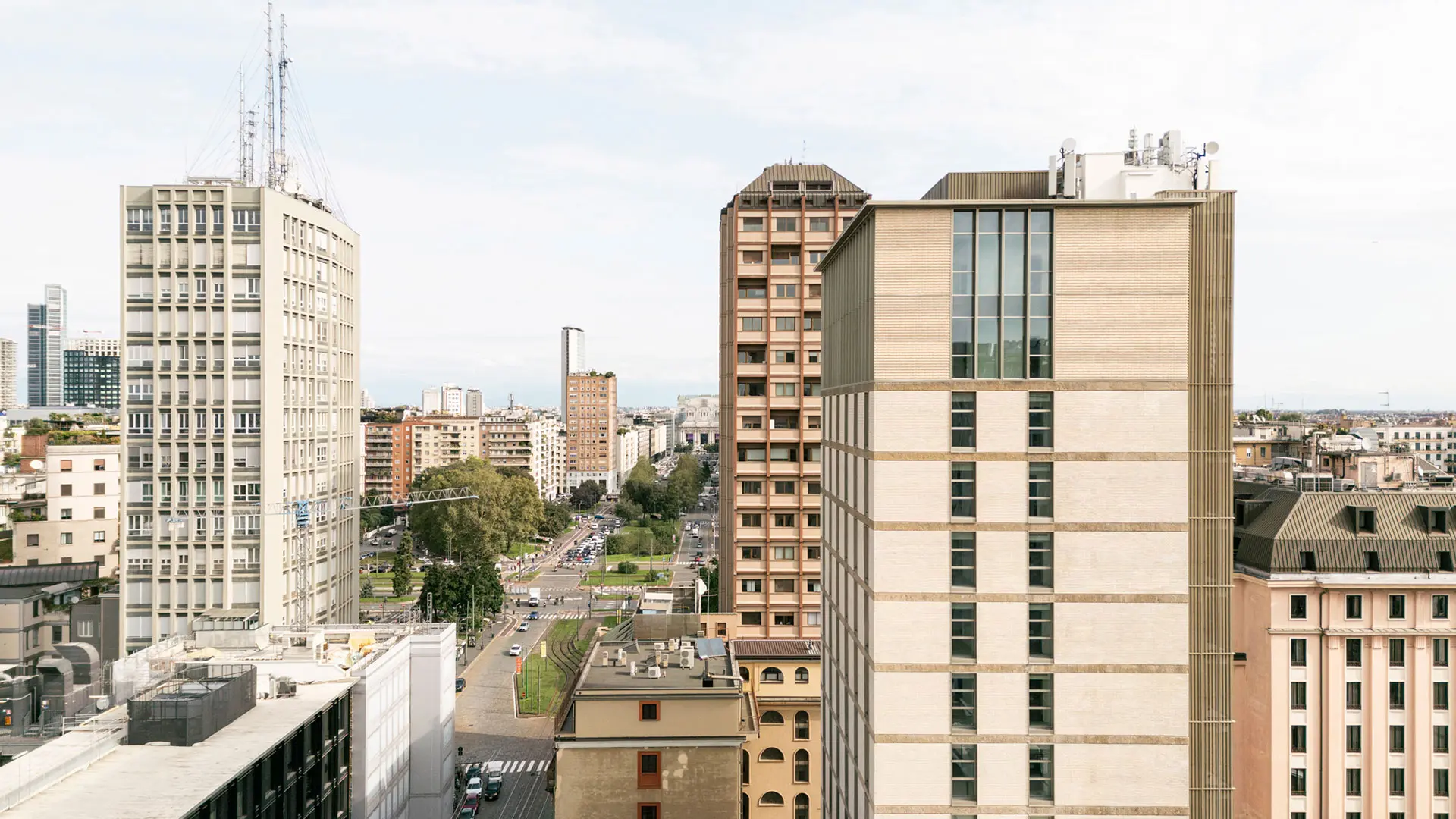In partnership with MiCodmc, a selection of establishments ripe for discovery during the 63rd edition of the Salone del Mobile.Milano, from 8th to 13th April

Impronte Sostenibili
After its Decalogue launched last year, FederlegnoArredo's commitment has been given concrete form with the launch of specific projects such as reforestation, access to innovative materials and the measurement of circularity
Sustainability: FederlegnoArredo's commitment becomes concrete. After the Decalogue launched last year in collaboration with the Fondazione Symbola, the projects to be achieved are in the pipeline. A start has already been made on some, like the Bosco del Design: in collaboration with Rete Clima, it was instituted in 2019 and undertakes replanting for the regeneration of habitats. Trees have been planted in urban areas such as Milan, in the areas affected by the storm Vaia, and those parts of the Park of the Madonie affected by wildfires in 2021 will be reforested.
1350 trees have been planted and 2130 will be planted each year. This project’s development can be followed on the website launched by Federlegno and devoted to the communication of all the actions developed for sustainability: Fla Plus.
There have been months of discussion and listening to the Federation's members, through targeted working groups and focus groups in the furniture and wood sectors coordinated by the delegates for sustainability Maria Porro, president of Assarredo and of the Salone del Mobile.Milano, and Paolo Fantoni, president of Assopannelli. The work has culminated in the drafting of concrete and measurable projects that were presented during the event “Sustainable Footprints, Regenerating the Future” organized by FederlegnoArredo on June 27 in Milan at the Federation’s annual assembly.
Maria Porro tells how the idea of a library of sustainable materials came to be created: “The problem is the time it takes for new materials to reach our companies. Beautiful ideas often fail to go into industrial production. To shorten this time we decided to create an open library, with technical information, prices and the possibility for everyone interested to get in touch with producers.”
The circularity of business processes is also one of the focuses of the actions adopted, with advice and a specially designed tool to assess their scope, given that the ISO 59020 standard for measuring circularity is expected to be issued in 2023.
Reliable and competent partners have also been identified who will assist companies on the path of ecological transition to which they are being summoned. To name only a few, the Politecnico di Milano for training projects and Banca Intesa San Paolo for an assessment of ESG (Environmental, Social, and Governance) performance, to identify areas for improvement that will lead to the drafting of sustainable balance sheets.
Claudio Feltrin, president of FederlegnoArredo, explains: “We must be more sustainable to be more competitive, but no one can be left alone. Our sector is already virtuous, in many cases it has even led the way. But now the time has come to activate a real supply chain scheme that aims to achieve zero waste, in which quality understood as the durability of products is our litmus test. And even before asking companies for direct involvement, we felt it was our duty to set a good example. And we did so a few weeks ago when we obtained admission to the Global Compact as the world’s first wood-furniture supply chain. This is testimony to the close consistency between our Decalogue and the ten principles of the United Nations Global Compact on human rights, labor, the environment and the struggle against corruption and gender differences. And now we are taking action to draft our sustainability report, with a view to transparency towards our members, stakeholders and the community.”


 Markets
Markets










